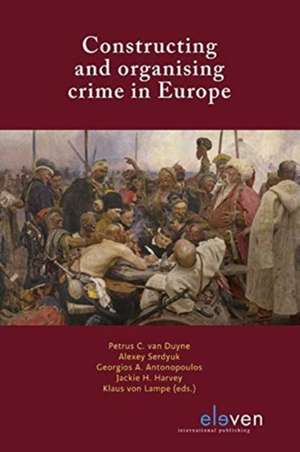Constructing and organising crime in Europe
Editat de Petrus C. van Duyneen Limba Engleză Paperback – 6 aug 2019
Preț: 534.36 lei
Preț vechi: 659.70 lei
-19% Nou
Puncte Express: 802
Preț estimativ în valută:
102.25€ • 107.04$ • 84.60£
102.25€ • 107.04$ • 84.60£
Carte tipărită la comandă
Livrare economică 02-08 aprilie
Preluare comenzi: 021 569.72.76
Specificații
ISBN-13: 9789462369559
ISBN-10: 9462369550
Pagini: 450
Dimensiuni: 170 x 244 x 24 mm
Greutate: 0.77 kg
Editura: Eleven International Publishing
ISBN-10: 9462369550
Pagini: 450
Dimensiuni: 170 x 244 x 24 mm
Greutate: 0.77 kg
Editura: Eleven International Publishing
Descriere
This volume of the 19th Cross-border Crime Colloquium, held in June 2018 in Kharkiv, consists of peer-reviewed contributions from 25 expert authors and young and upcoming researchers. They cover many issues at the centre of criminological and criminal policy debates
